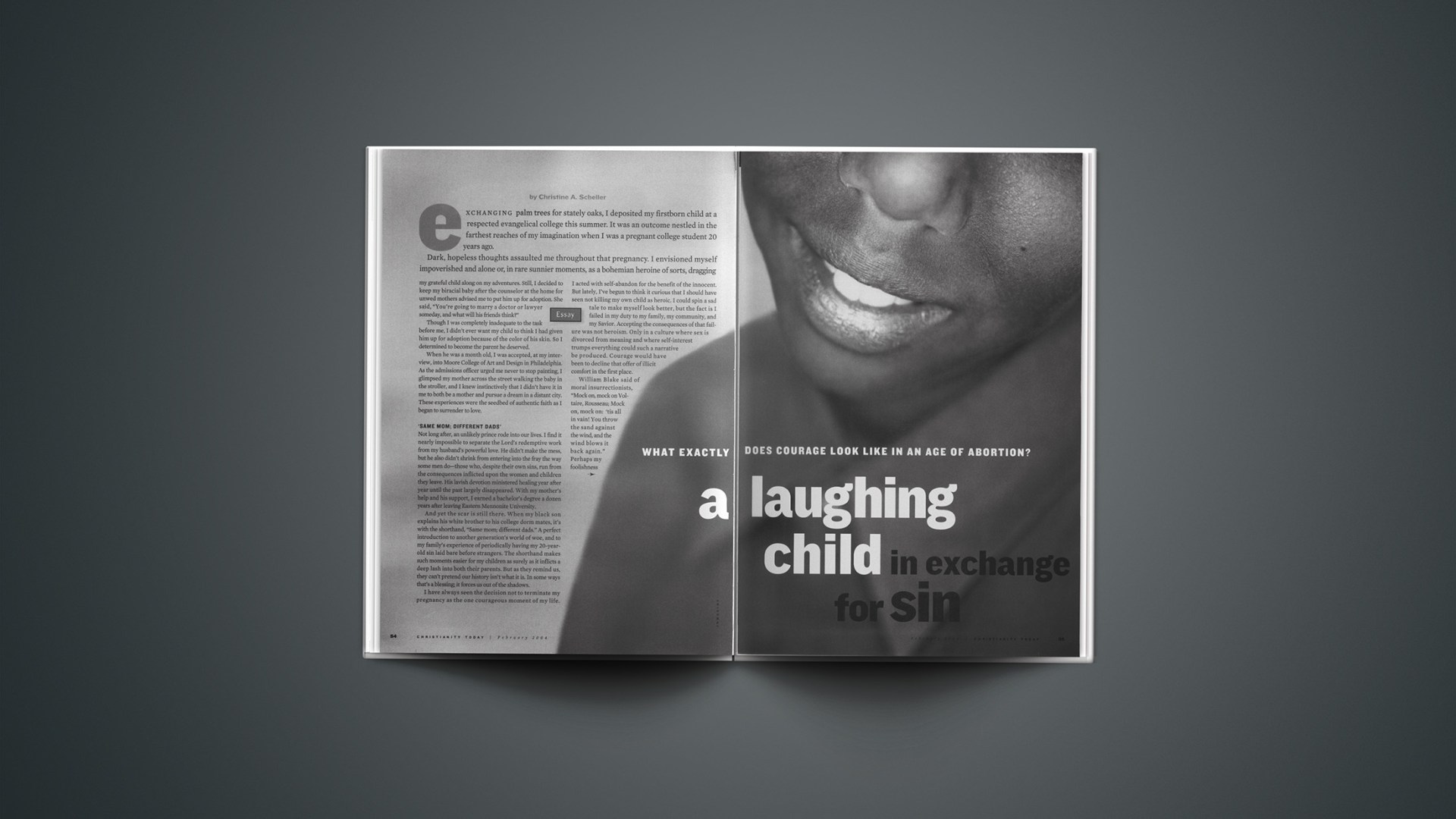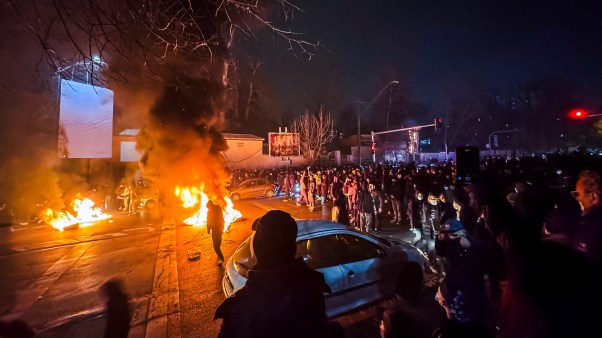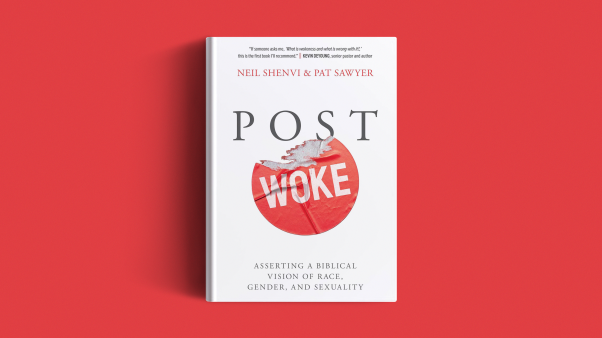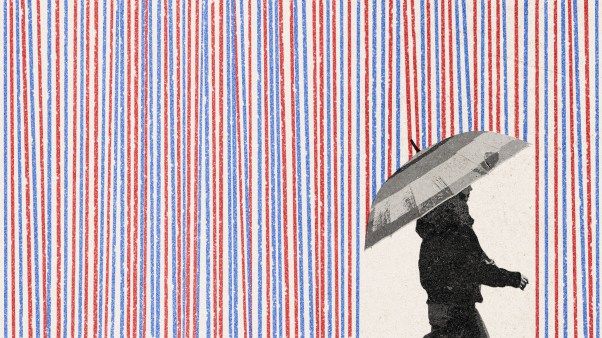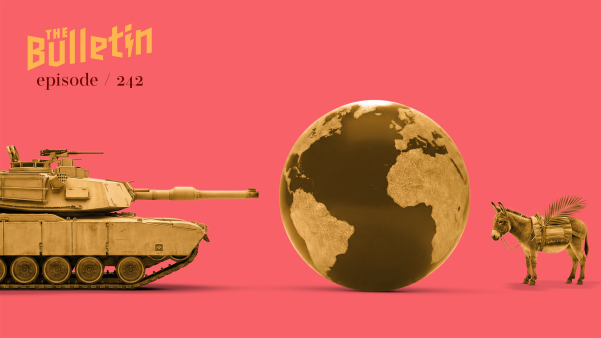Exchanging palm trees for stately oaks, I deposited my firstborn child at a respected evangelical college this summer. It was an outcome nestled in the farthest reaches of my imagination when I was a pregnant college student 20 years ago. Dark, hopeless thoughts assaulted me throughout that pregnancy. I envisioned myself impoverished and alone or, in rare sunnier moments, as a bohemian heroine of sorts, dragging my grateful child along on my adventures. Still, I decided to keep my biracial baby after the counselor at the home for unwed mothers advised me to put him up for adoption. She said, “You’re going to marry a doctor or lawyer someday, and what will his friends think?”
Though I was completely inadequate to the task before me, I didn’t ever want my child to think I had given him up for adoption because of the color of his skin. So I determined to become the parent he deserved.
When he was a month old, I was accepted, at my interview, into Moore College of Art and Design in Philadelphia. As the admissions officer urged me never to stop painting, I glimpsed my mother across the street walking the baby in the stroller, and I knew instinctively that I didn’t have it in me to both be a mother and pursue a dream in a distant city. These experiences were the seedbed of authentic faith as I began to surrender to love.
‘Same Mom; Different Dads’
Not long after, an unlikely prince rode into our lives. I find it nearly impossible to separate the Lord’s redemptive work from my husband’s powerful love. He didn’t make the mess, but he also didn’t shrink from entering into the fray the way some men do—those who, despite their own sins, run from the consequences inflicted upon the women and children they leave. His lavish devotion ministered healing year after year until the past largely disappeared. With my mother’s help and his support, I earned a bachelor’s degree a dozen years after leaving Eastern Mennonite University.
And yet the scar is still there. When my black son explains his white brother to his college dorm mates, it’s with the shorthand, “Same mom; different dads.” A perfect introduction to another generation’s world of woe, and to my family’s experience of periodically having my 20-year-old sin laid bare before strangers. The shorthand makes such moments easier for my children as surely as it inflicts a deep lash into both their parents. But as they remind us, they can’t pretend our history isn’t what it is. In some ways that’s a blessing; it forces us out of the shadows.
I have always seen the decision not to terminate my pregnancy as the one courageous moment of my life. I acted with self-abandon for the benefit of the innocent. But lately, I’ve begun to think it curious that I should have seen not killing my own child as heroic. I could spin a sad tale to make myself look better, but the fact is I failed in my duty to my family, my community, and my Savior. Accepting the consequences of that failure was not heroism. Only in a culture where sex is divorced from meaning and where self-interest trumps everything could such a narrative be produced. Courage would have been to decline that offer of illicit comfort in the first place.
William Blake said of moral insurrectionists, “Mock on, mock on Voltaire, Rousseau; Mock on, mock on: ’tis all in vain! You throw the sand against the wind, and the wind blows it back again.” Perhaps my foolishness can be traced back to their brood, but I sometimes wonder when the baby boomers who sold me such a wretched bill of goods will at least sweep up the sand.
Maybe they didn’t realize they were devouring their own children when they threw off the bonds of traditional morality, but they seem almost oblivious to the depths of their failure. The tired message of women like Kate Michelman, retiring president of NARAL Pro-Choice America, is part of their legacy.
The New York Times calls Michelman “one of the grand dames of the reproductive rights debate.” She became an abortion activist after her husband abandoned the family when she was pregnant with their fourth child. She was humiliated to discover that she would need his permission and that of an all-male hospital board to obtain a legal abortion. (Imagine allowing a single humiliation to define you.) Michelman is stepping down to care for her ailing husband and their daughter, according to The Times. She says, “After nearly 20 years of pouring my heart and soul into this organization I must now put them first.” It’s an ironic statement from the lips of someone who advocated a utilitarian view of family for so many years.
Michelman says the “true impact” of NARAL can be measured by the “countless women whose lives have been saved and children whose lives have been enriched by our work.” Though the lie is smooth as silk, her message is both hopeless and materialistic: hopeless because it says the human spirit cannot overcome devastation (in this case, of unwanted pregnancy), and materialistic because it assigns a family’s economic concerns ultimate priority, devaluing the poor—not to mention the unborn—in the process.
My grandmother’s experience makes Michelman’s (and my own) look like a day at the beach. Abandoned by her husband in the slums of Newark, New Jersey, she raised seven children by herself. Then she raised three of her grandchildren after they too were abandoned. It could be said that this course of action led to an early grave, and she was not a happy woman toward the end of her life. But would any of my cousins or I say one of our parents should have been sacrificed in utero so the others could have had a better life—or so that our grandmother could have? I don’t think so. We would all agree, however, that our grandfather should have been wrangled back from his real-estate pursuits in Florida and sentenced to forced labor for their support. My grandmother surrendered her life for her family. That’s everyday nobility. It degrades us to sacrifice our children and call it virtue.
Michelman is obviously a resourceful woman. Somehow I think she would have managed to succeed, even with that fourth child. To say others are incapable of the same is nothing more than condescension. And it hardly seems necessary to mention that legalized abortion exponentially reinforces the male tendency toward sexual irresponsibility. The argument that legalizing abortion prevents back-alley abortion tragedies is like saying society ought to dance with the devil because unless we do, those who sleep with him might get torched.
Mind-Boggling Witness
Two boomer friends of mine provided a sharp contrast to Michelman and her peers. In addition to hosting an annual National Day of Prayer gathering at their expansive home, Jean Peterson ministered to unwed mothers and post-abortive women, while her husband Don counseled repentant substance abusers and financial mismanagers. They went about the work of redeeming a generation of Americans, all the while tethering that work to its source in prayer. They left this world as part of the group of passengers who saved our nation’s capital from becoming the third target of terrorists on September 11, 2001. Theirs is the legacy worth emulating.
Oswald Chambers said, “God does not make us holy in the sense of character; he makes us holy in the sense of innocence, and we have to turn that innocence into holy character by a series of moral choices.” It was more than I could grasp that Christ would render me innocent of my sin, but then without ever trying, I gained an unexpected moral authority among my non-Christian friends and acquaintances because of the choices I made after I sinned.
Their snickering at my pregnancy and early marriage gradually turned to respect. They would sometimes tell me that when they had moral decisions to make, they would consider what my husband or I might do. Women who had had abortions occasionally reinforced the idea that I had been courageous, particularly white middle class women with education, a group highly represented in abortion statistics.
Women like these identify with my moral failure, and that makes me non-threatening. But they also recognize the hope of redemption and the power of moral absolutes in a world that tells us neither is necessary. That I should gain moral authority after sin is about as mind-boggling as reconciling the sovereignty of God in my son’s conception with that same sin. Nonetheless, it is a privileged witness to possess.
There is a contrasting Christian witness, though. I write about it only because in our churches we so often talk about abortion as if it were an evil separate from us. But unless we are honest with ourselves about who we are, we cannot hope to turn our own culture on its head, let alone influence the larger one. One story suffices to describe it: My husband and I befriended a young woman years ago when he was a student at Philadelphia Biblical University. I was ripe with my second pregnancy when she abruptly disappeared from our lives. Several months later she reappeared with an explanation. She had had successive sexual relationships with two Bible college students. She had gotten pregnant by a youth leader of a Presbyterian church. He had driven her to the abortion clinic, paid to get rid of the problem—wouldn’t even go inside with her—then dropped her off at her dorm when it was over. She said she thought I would understand, and she knew God would forgive her. She continued serving in various ministries, graduated with her class, and married into a respected Christian family.
I attended her bridal shower, but I didn’t “understand” for some time. I was angry at the perceived injustice of others “getting away with” their sin while mine was costly and public. The anger subsided and I began to feel sorry for her as I recalled my exquisite experience of the grace of God: A laughing child in exchange for sin. How incomparable! Those who pile sin on top of sin acquire instead the leanness of soul described in Psalm 106:13-15: “They soon forgot his works; they did not wait for his counsel, but lusted exceedingly in the wilderness, and tested God in the desert. And he gave them their request, but sent leanness into their soul.” Think of David during his long-delayed repentance. I’ve heard it said that he never regained his moral authority because of his shame, thereby sowing destruction into his kingdom. I wonder how many Christians, because of shame over some act of duplicitous cover-up, are unable to speak with voices of moral certitude. And what is it costing our nation?
Stronger for the Shaking
There was an important distinction between me and the Bible college coed who had an abortion. When I discovered I was pregnant, I knew that, in spite their devastation at my betrayal, my parents loved me more than they cared what the neighbors thought. She didn’t know any such thing; her Christian parents had scorned girls like me.
So if there was any hint of courage in my decision to abandon myself to motherhood prematurely, it was this: the exchange of the therapeutic shadow of a faith for an orthodox one. Or, as Puritan writer William Gurnall says in The Christian in Complete Armour, “God can, in fact, use his saints’ failures to strengthen their faith, which, like a tree, stands stronger for the shaking… And here is all the devil gets: Instead of destroying the saint’s faith, he is the means of refining it, thereby making it stronger and more precious.”
How the next generation needs us to snatch back the victory from the enemy with faith that first rises valiantly from the failures of our own and then speaks with a sturdy voice. The narrative we transfer has to include our own repentance and it has to be more penetrating than the one I heard.
Twenty years of crafting a new narrative for my children came to a close on the lawn of a college much like the one where the sensate tale failed me. So hugging my son one last time before flying back to the palm trees, I left him with an exhortation: “Don’t defraud anyone sexually, for God is the defender of all such.”
Wryly he answered, “Can’t a girl defraud me?”
“Yes,” I conceded with a sigh, resisting the temptation to add, “But remember your mother, remember the pain she caused you, and let the wind take the sand far from you.”
Christine A. Scheller is an editor with Calvary Chapel Publishing in Santa Ana, California.
Copyright © 2004 Christianity Today. Click for reprint information.
Related Elsewhere:
More on abortion issues includes:
Complicit Guilt, Explicit Healing | Men involved in abortion are starting to find help. (Oct. 27,2003)
Will the Partial-birth Abortion Ban Save Lives? | Most prolife groups say the ban in itself is not what is important. (Oct. 23,2003)
Prolife Groups Ready to Defend Partial-Birth Abortion Ban | Court challenge to new law expected. (July 14, 2003)
The Pastor Without a Paycheck | Randy Alcorn learned to live what he had preached while fleeing the wrath of abortionists and the judgment of the courts. (April 22, 2003)
Prolife Advocates Herald Partial-Birth Abortion Ban | President Bush promises to sign May 13 Senate bill. (April 23,2003)
Prolife Groups Respond to Conviction of Antiabortion Extremist | James Kopp faces 15 years to life for crime. (April 22, 2003)
Saved by Sonogram | Ultrasounds help crisis pregnancy centers reduce abortion. (Feb. 24, 2003)
The Abortion Wars | What most Christians don’t know about the history of prolife struggles. (Jan. 22, 2003)
Saving Black Babies | Abortion has cost 13 million African American lives. (Jan. 10, 2003)
More by Christine A. Scheller:
The Little School in the Living Room Grows Up | A homeschooling mom visits one of the largest conventions in the country and notes how this form of alternative education has changed—to the chagrin of traditionalists. (Sept. 06, 2002)
No Dissing This Learning | Homeschools do as well, if not better, than their classroom counterparts (Sept. 06, 2002)
Missing the Rupture | How two groups address the real issues behind church splits. (May 09, 2003)

